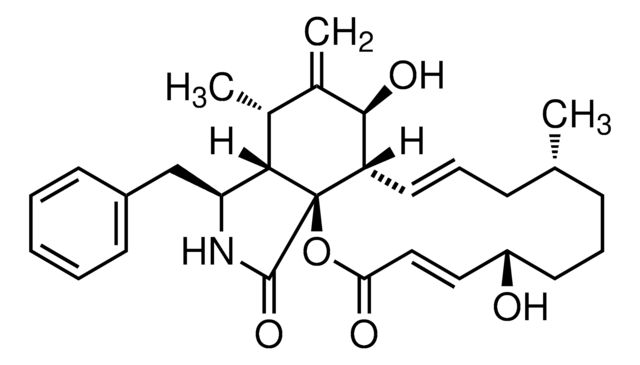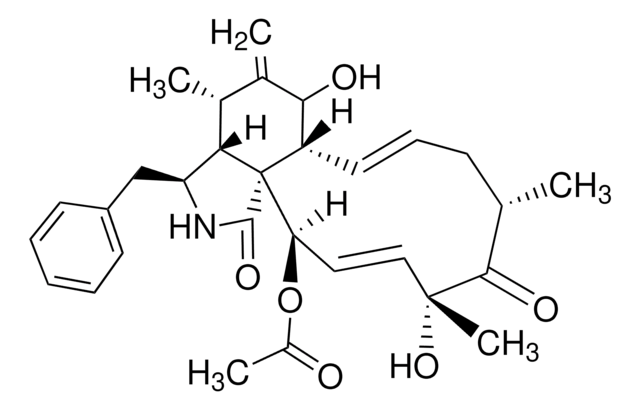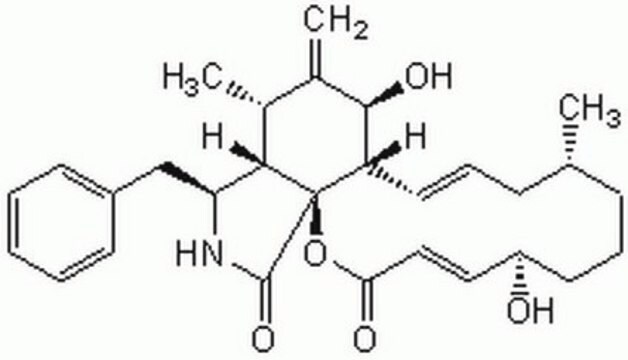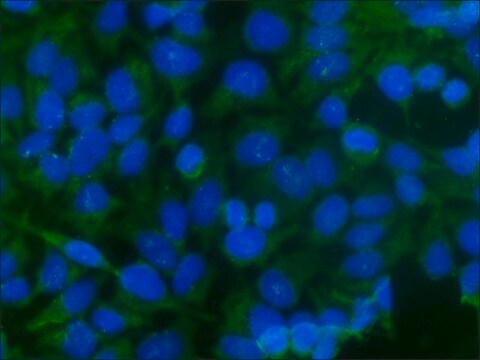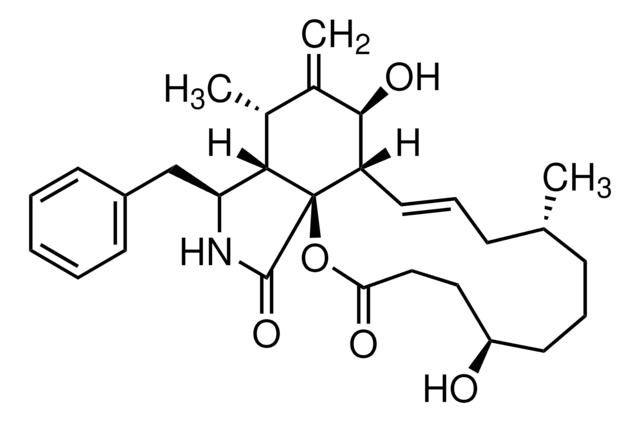C6762
Cytochalasin B from Drechslera dematioidea
≥98% (HPLC), powder
Synonym(s):
Phomin
About This Item
Recommended Products
Quality Level
Assay
≥98% (HPLC)
form
powder
color
white
solubility
DMSO: 10 mg/mL
antibiotic activity spectrum
fungi
Mode of action
DNA synthesis | interferes
storage temp.
−20°C
SMILES string
C[C@@H]1CCC[C@@H](O)\C=C\C(=O)O[C@]23[C@@H](\C=C\C1)[C@H](O)C(=C)[C@@H](C)[C@H]2[C@H](Cc4ccccc4)NC3=O
InChI
1S/C29H37NO5/c1-18-9-7-13-22(31)15-16-25(32)35-29-23(14-8-10-18)27(33)20(3)19(2)26(29)24(30-28(29)34)17-21-11-5-4-6-12-21/h4-6,8,11-12,14-16,18-19,22-24,26-27,31,33H,3,7,9-10,13,17H2,1-2H3,(H,30,34)/b14-8+,16-15+/t18-,19-,22-,23+,24+,26+,27-,29-/m1/s1
InChI key
GBOGMAARMMDZGR-TYHYBEHESA-N
Looking for similar products? Visit Product Comparison Guide
General description
- Disruption of actin filaments and of interaction of actin filaments in solution
- Inhibition of actin polymerization
- Inhibition of subunit association and dissociation
Biochem/physiol Actions
Signal Word
Danger
Hazard Statements
Precautionary Statements
Hazard Classifications
Acute Tox. 1 Inhalation - Acute Tox. 2 Dermal - Acute Tox. 2 Oral - Repr. 2
Storage Class Code
6.1A - Combustible acute toxic Cat. 1 and 2 / very toxic hazardous materials
WGK
WGK 3
Personal Protective Equipment
Certificates of Analysis (COA)
Search for Certificates of Analysis (COA) by entering the products Lot/Batch Number. Lot and Batch Numbers can be found on a product’s label following the words ‘Lot’ or ‘Batch’.
Already Own This Product?
Find documentation for the products that you have recently purchased in the Document Library.
Articles
We presents an article about the Warburg effect, and how it is the enhanced conversion of glucose to lactate observed in tumor cells, even in the presence of normal levels of oxygen. Otto Heinrich Warburg demonstrated in 1924 that cancer cells show an increased dependence on glycolysis to meet their energy needs, regardless of whether they were well-oxygenated or not.
Our team of scientists has experience in all areas of research including Life Science, Material Science, Chemical Synthesis, Chromatography, Analytical and many others.
Contact Technical Service